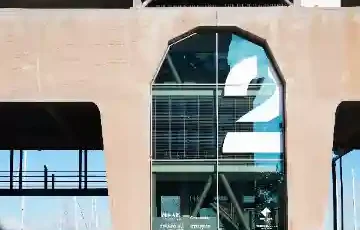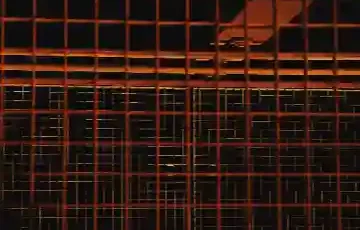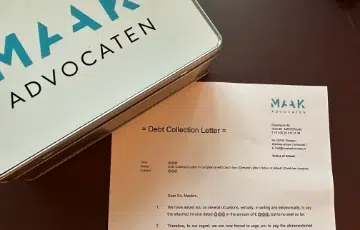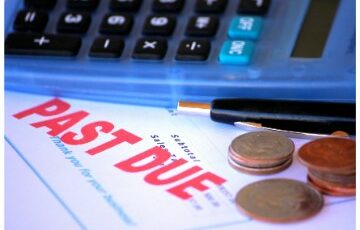Bank account seizure in the Netherlands means a bailiff blocks your balance based on a judgment or writ of execution. The bank freezes your account and transfers the amount above the protected threshold to the creditor. You can resolve this by paying the debt, arranging a payment plan, or legally contesting the seizure through summary proceedings.
Once a Dutch bailiff seizes your bank account, you receive official notification within eight days. However, many account holders notice something is wrong earlier, for example when withdrawing cash suddenly fails. Your bank immediately blocks your account to process the seizure according to Article 475 of the Dutch Code of Civil Procedure. The balance above the protected amount goes to the creditor, while the remainder stays yours. With an insufficient balance, this reduces your debt but leaves your account empty until new income arrives.
How Does Bank Seizure Work Under Dutch Law?
A bailiff may only impose seizure in the Netherlands when holding an enforceable title such as a judgment or writ from government authorities. The title must first be officially served to you before seizure follows. Government institutions like the Tax Administration can however issue writs themselves without court intervention.
The bailiff in the Netherlands sends a seizure writ to your bank containing the judgment and precise instructions. From that moment, your financial institution freezes your account completely. Withdrawing money, executing transfers or card payments become impossible. However, incoming funds like salary can still be credited but immediately fall under seizure if exceeding the protected amount.
Within two weeks, your Dutch bank sends a statement to the bailiff showing the exact balance at seizure. You receive a copy of this bank statement within three days, allowing you to know precisely which amount was affected. Subsequently, the bank transfers the amount above the protected threshold to the bailiff. This process follows strict statutory deadlines that banks must respect.
Money deposited after seizure in the Netherlands usually does not fall under the original attachment. Nevertheless, the bailiff can impose renewed seizure if your debt remains unpaid. This repetition often causes financial distress for account holders dependent on regular income.
What Protection Does the Seizure-Free Amount Offer Under Dutch Law?
The seizure-free amount under Dutch law protects account holders against complete financial isolation by keeping a minimum amount available for necessary living expenses. This amount varies according to your family situation and is automatically calculated by the bailiff based on your personal circumstances.
For 2024, the following protected amounts apply:
- Singles without children: €1,996.21
- Single parents: €2,162.60
- Married or cohabiting without children: €2,631.49
- Married or cohabiting with children: €2,747.09
- Homeless persons: €917.02
Do you have more than the protected amount in your account? Then the bailiff seizes the surplus. Is your balance below this threshold? Then seizure is legally prohibited. However, this protection only applies to the balance at seizure moment, not to subsequent deposits.
Always verify whether the Dutch bailiff has applied the correct protected amount. Errors occur regularly, for example when your family situation recently changed. With an incorrectly calculated amount, you can immediately object to the bailiff with documentation of your current situation.
What Are Your Immediate Legal Options in the Netherlands?
Once your Dutch bank account is seized, you have several legal instruments to influence the situation. Most importantly, act quickly since delay further deteriorates your financial position.
Immediately arrange a payment plan with the Dutch bailiff. In 75% of cases, a realistic payment plan prevents further seizures and enforcement measures. The bailiff is not obligated to agree, but usually cooperates when you present a serious proposal. For instance, propose monthly payments matching your income and fixed costs. Document your financial situation with bank statements, rental contract and payroll administration.
Offer substitute security when seizure excessively hinders your daily payment transactions. A bank guarantee or collateral can replace the account seizure. This solution works especially for entrepreneurs who cannot accept a blocked business account due to ongoing payment obligations to suppliers.
Start summary proceedings in the Netherlands at the district court where seizure was requested if you believe the attachment is unjustified. This occurs for example when the claim has expired, the debt was already paid, or the bailiff made procedural errors. Summary proceedings require a lawyer, but can lift seizure within several weeks.
When Is Bank Seizure Legally Unlawful in Dutch Law?
Seizure can be lifted if it appears summarily that the right invoked by the seizing party is defective or the seizure is unnecessary according to Article 705 of the Code of Civil Procedure. This legal test requires you to demonstrate plausibly that the claim is incorrect or the seizure is disproportionate.
Concrete situations for lifting include expired claims, where the statutory period of five years according to Article 3:306 of the Dutch Civil Code has elapsed. Also when you can prove the debt was already satisfied or does not exist, you have strong grounds for lifting. Moreover, seizure can be lifted if your income is already seized, creating double attachment that unnecessarily burdens your financial position.
In practice, errors also occur with old property seizures never lifted, while the claim was satisfied long ago. These dormant seizures often block sales or refinancing. A lawyer can verify whether seizure remains valid and demand lifting if necessary.
Practice example: An Amsterdam entrepreneur received a bank seizure of €8,500 for a claim he had paid three years earlier. Through his lawyer, he submitted bank statements and receipts in summary proceedings. The judge lifted the seizure within two weeks and awarded the entrepreneur €1,200 compensation for lost income from missed payments.
What Role Does Conservatory Versus Executory Seizure Play Under Dutch Law?
Conservatory seizure is imposed before or during legal proceedings and requires permission from the preliminary relief judge. This preservative attachment prevents a debtor from selling assets before the court rules. You receive no advance notice, making conservatory seizure often a surprise. The preliminary relief judge does not assess whether the claim is valid, only whether sufficient grounds exist for preservative attachment.
Executory seizure, however, is imposed after the court has issued judgment. This seizure always requires an enforceable title such as a court judgment, notarial deed or official report. The bailiff must first serve this title before imposing seizure.
The difference is crucial for your defense. With conservatory seizure, proof is still needed that you must actually pay. Do you win the main proceedings? Then the seizure automatically lapses and you can claim damages. With executory seizure, the claim is already established, making lifting only possible through procedural errors or emergency on your part.
What Happens After Bankruptcy in the Netherlands?
All seizures automatically lapse upon bankruptcy declaration according to the Dutch Bankruptcy Act. This means conservatory seizure offers no protection against debtor bankruptcy. The assets then fall into the estate and are distributed among all creditors according to the ranking of the Bankruptcy Act.
For creditors, this represents a significant risk. They must file their claim with the bankruptcy trustee and wait for potential distribution from the estate. In most bankruptcies, ordinary creditors receive only a fraction of their claim, often less than 10%. Therefore, creditors often attempt settlement before bankruptcy is filed.
How Do You Start Enforcement Proceedings Under Dutch Law?
Do you believe the bailiff acts unlawfully when executing seizure? Then you can start enforcement proceedings at the district court according to Article 438 of the Code of Civil Procedure. This occurs for example when the bailiff seizes both your income and bank account immediately after salary deposit, leaving you nothing for subsistence.
In enforcement proceedings, the judge assesses whether the method of execution is lawful. The judge can order the bailiff to lift one of the seizures or to accept a payment arrangement. For these proceedings, you need a lawyer who presents the case to the court with concrete evidence of your financial situation.
Case law shows that judges regularly intervene when enforcement is disproportionate. For instance, when a bailiff seizes the entire salary without considering the protected amount, or when multiple seizures together create an untenable situation. The district court can then impose payment terms or moderate seizures.
Are you dealing with bank seizure and unsure which steps are legally most effective? A specialized lawyer analyzes your specific situation and advises on payment arrangements, grounds for objection or starting summary proceedings. Early legal advice often prevents further escalation and protects your financial position.
What Preventive Measures Can You Take in the Netherlands?
Prevent bank seizure by responding immediately when receiving a judgment or demand. Never ignore letters from bailiffs, as this makes seizure virtually inevitable. Contact within 14 days to propose a payment arrangement before seizure procedures start.
Maintain sufficient liquidity in a separate account for unexpected seizures. Entrepreneurs often open a second bank account specifically for taxes and social premiums, ensuring seizure of the business account does not immediately lead to insolvency. This separation protects your operational continuity.
Always document payments to creditors carefully with transaction confirmations and receipts. In many enforcement disputes, it later appears that debts were already satisfied but could not be proven due to inadequate administration. Retain financial documents for at least seven years according to tax legislation.
Contact a lawyer specialized in enforcement law as soon as you see an impending seizure situation. Professional guidance in negotiations with bailiffs increases the chance of an acceptable payment arrangement and prevents legal procedures that further weaken your financial position.









